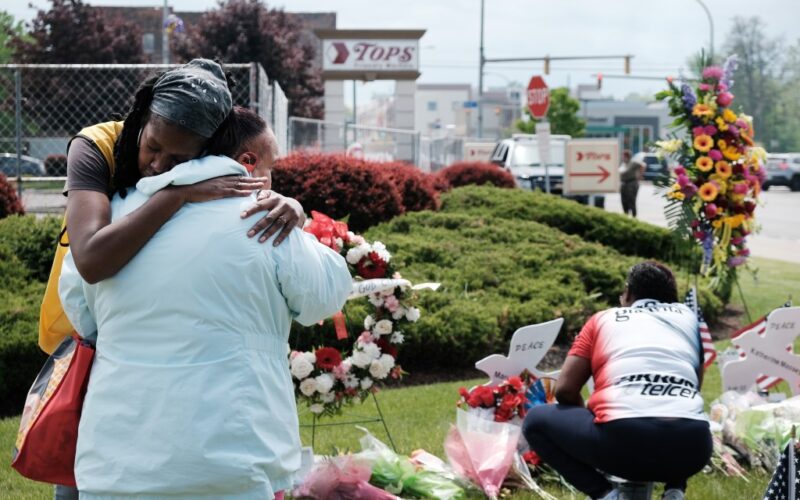Three years ago, an angry 18-year-old walked into the Tops Friendly Supermarket on the East Side of Buffalo and opened fire with an AR-15-style rifle, killing 10 Black people. In some such cases, the motives of the killer are inscrutable or muddy; not so here, where the killer was open about his extreme racist views, including in a manifesto that largely parroted white supremacist hate on immigration.
It seems like the teen assassin developed these views largely from social media, including those owned by tech giants like Meta and Alphabet. These platforms would help spread his sick message even after the killer was taken into custody, via recorded live streams of the murders that spread wildly in the aftermath.
Tomorrow, a Rochester appellate court will hear the companies’ efforts to dismiss lawsuits attempting to hold them accountable, which were filed by the families, in addition to suing the upstate store where he bought his assault weapon. This is a somewhat novel legal theory of responsibility, but it’s one worth pursuing and the Buffalo trial judge denied the motions to dismiss.
These platforms have enormous impact on our society and greatly shape general public attitudes, stoke conspiracies and spread misinformation. We have supported the ability of survivors and families to sue gun manufacturers, distributors and marketers over their negligent behavior in allowing weapons of war to end up in the hands of people who will misuse them — or more accurately use them as intended — to kill.
The guns, however, do not act alone. They are wielded by people who very often have bizarre grievances and extremist political agendas cultivated on social media platforms. The crux of the lawsuit is a very simple point: these companies are not simply bystanders to this radicalization.
They have designed their products and algorithms specifically to favor “engagement,” which in practice ends up most often meaning anger, hate speech, conspiracy and division, because these things keep people attached to their devices and thus generate enormous ad revenue profits for these companies. Is that incitement?
Lawsuits like these have little precedent because it is generally difficult to establish concrete harm that has arisen from the radicalization that they enable. In this case, though, the harms are all too painfully clear: people slaughtered by a white supremacist who specifically targeted a supermarket in a predominantly Black neighborhood.
The killer watched countless videos and discussed his filth online with fellow travelers, not to mention asking for practical advice, like what type of body armor to wear; this body armor ultimately stopped a round fired by an armed guard, who was then killed by the shooter.
Emanating out from these victims are 10 families moving forward without their loved ones, communities devastated by their loss, people living with injuries and post-traumatic stress disorder and so on.
Can the plaintiffs establish to the satisfaction of a jury that these platforms played an active or at least negligent role in this radicalization that culminated in this heinous event? That’s left to be seen, but they should certainly have the opportunity.
However the Rochester appellate panel rules following tomorrow’s oral argument, the matter will surely end up before the Court of Appeals in Albany, New York highest court, which means it’s still going to be a long time before it is resolved.








